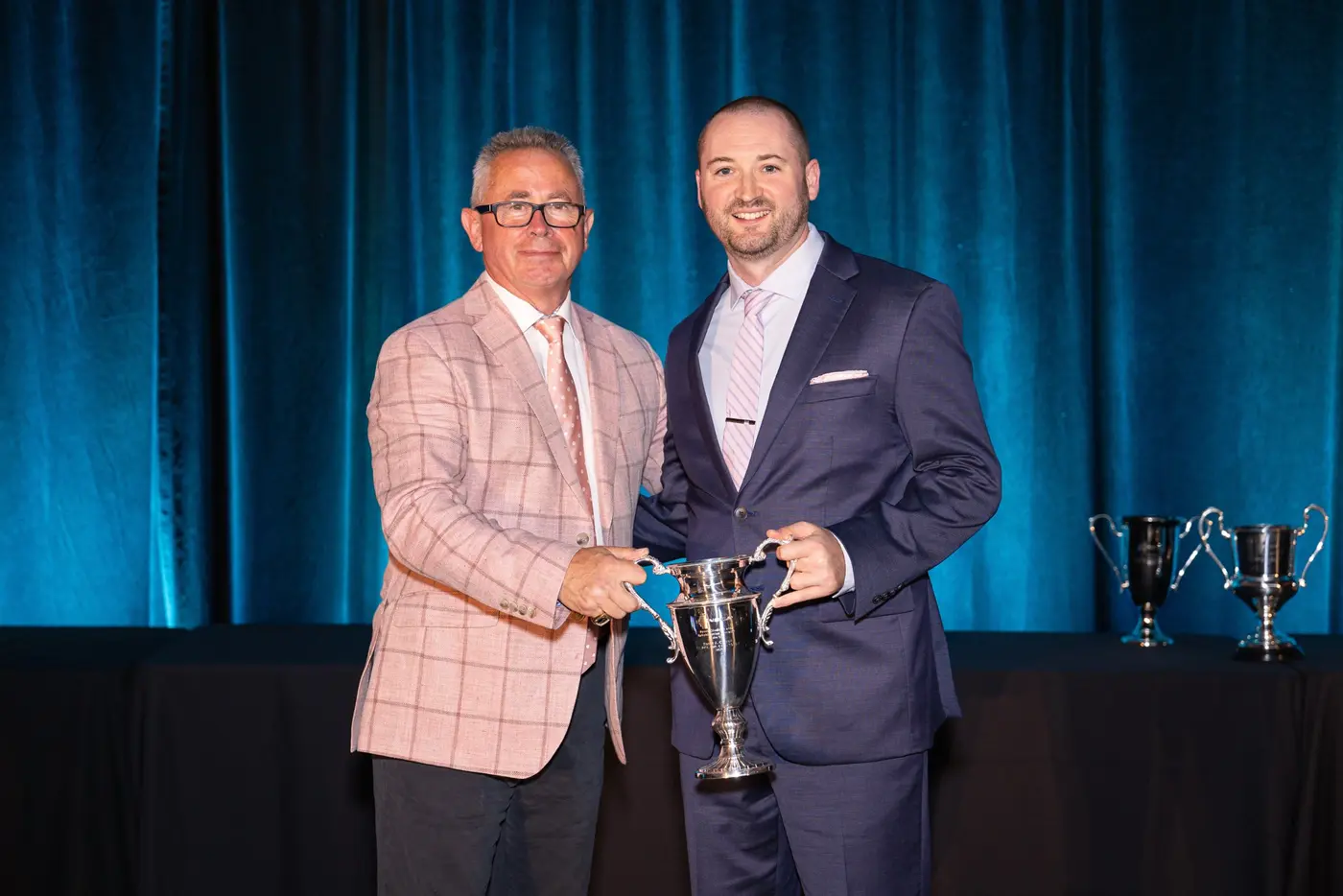
David Cornell, right, receives the Sports Medicine and Rehabilitation Award from Ian Jeffreys, left, president of the board of directors of the National Strength and Conditioning Association.
When Associate Professor David Cornell talks to undergraduate students about physical therapy career options, he often starts with a warning: “Don’t do what I did.”
Cornell had assumed physical therapy was limited to helping patients regain strength and mobility after surgery — essential work, but an area that didn’t excite him as an exercise science major. That changed when he interned for a head strength and conditioning coach who trained high school athletes. Learning how physical therapy could prevent injuries and improve performance opened Cornell’s eyes to the broader potential of the field and to the different types of people he could work with.
Cornell completed a master’s degree in kinesiology and dual Ph.D. and Doctor of Physical Therapy degrees, setting him on a path that recently earned him the Sports Medicine and Rehabilitation Specialist Award from the National Strength and Conditioning Association (NSCA). He accepted the award in July at the 2025 NSCA National Conference in Kansas City, Missouri.
“I’m honored to receive this award from NSCA because it reflects not just my contribution to the field, but the dedication of my students, collaborators and colleagues who share the goal of helping people move better, recover faster and perform at their best,” says Cornell, who serves as the program director of the Doctor of Physical Therapy program in the Department of Physical Therapy and Kinesiology. He became a certified strength and conditioning specialist in 2010.
Cornell studies how to prevent injuries and improve performance by evaluating the nervous system, muscle function and proven sports medicine techniques, especially for tactical operators, like soldiers and firefighters, as well as athletes and clinical populations. He has published papers examining the changes in musculoskeletal injury risk factors among firefighter recruits, describing the recovery of active-duty firefighters and validating various devices to collect physiological measures.
He has also researched how long starting pitchers in baseball need for recovery before bouncing back to peak performance and how much military training is needed for soldiers.
“From the start of my career, I enjoyed how research could be translated to clinical practice, which allowed me to explore questions about the enhancement of health, fitness and physical performance,” he says.
In addition to his research, Cornell is actively engaged with his students, many of whom he mentors on research projects.
